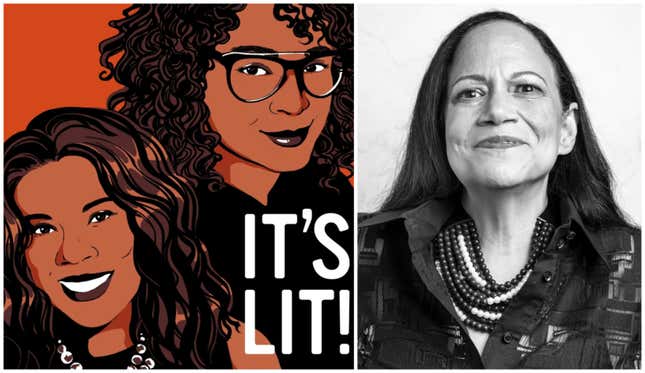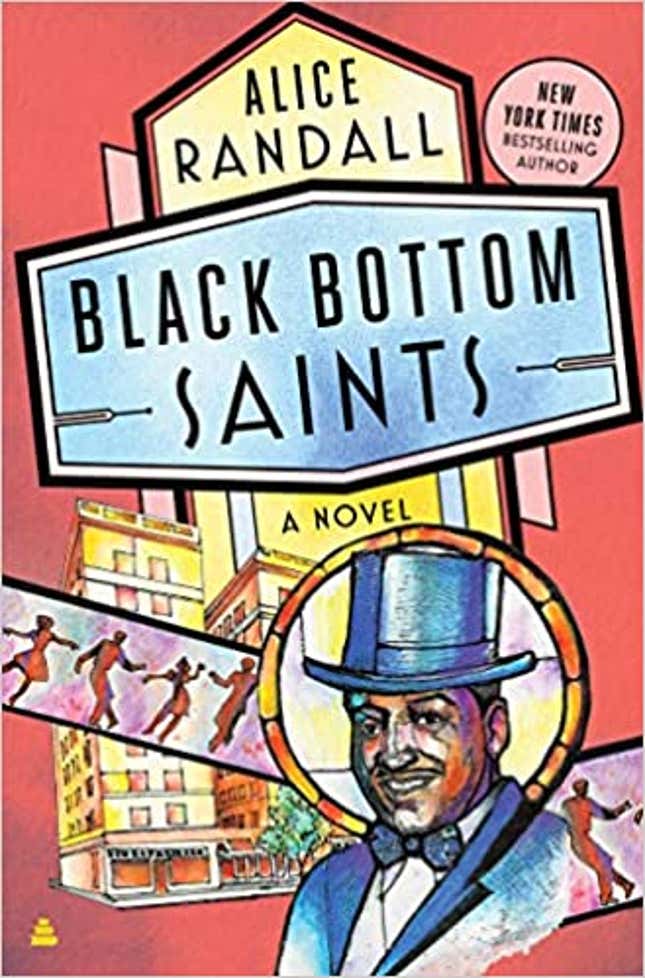
In case you haven’t noticed, “Black joy” has been our theme for Black History Month 2021 at The Root—and as the month comes to a close, it’s fitting that we share the joy that is writer Alice Randall. Perhaps you’re familiar with Randall through her bestselling (and controversial) 2001 parody of Gone With the Wind, reapproached from a less romantic and far more relevant angle as The Wind Done Gone. If not, maybe you also didn’t know Randall was the first Black woman to co-write a number-one country hit, the 1994 single “XXX’s and OOO’s (An American Girl),“ made famous by Trisha Yearwood. Then, there are her other projects—three more distinctly different novels; the Phillis Wheatley Award-winning children’s book The Diary of B.B. Bright, Possible Princess; and even a cookbook—2015's NAACP Award-winning Soul Food Love , co-written with her daughter and fellow writer (and 2020 The Root 100 honoree) Caroline Randall Williams.
For writers like The Root’s Editor-in-Chief Danielle Belton and myself, Randall’s varied resumé is inspiring, making her something like a living patron saint of a multifaceted and seemingly fearless approach to the craft. As she makes clear during this week’s episode of The Root Presents It’s Lit!, it’s also a joyful approach, one she gladly indulged in for her most recent novel, Black Bottom Saints.
“Joy is radical,” she tells us. “And Black joy is even more radical.”
We wholeheartedly agree—which is why we dove into Randall’s semi-autobiographical revisitation of her childhood home in Detroit’s famed “Black Bottom” neighborhood. There, we are transported back to 1968 and introduced to real-life local legend Joseph “Ziggy” Johnson, the emcee, nightclub and dance school owner and newspaper columnist who was one of Randall’s earliest mentors and is honored by a portrait on the book’s cover.
“I’ve wanted to be a writer since I was three years old and the only writer I knew when I was three years old, toddling into the Ziggy Johnson School of the Theater was Ziggy Johnson, who was typing on a little typewriter and publishing every week in the Michigan Chronicle,” Randall recalls. “And my father read those columns aloud to me before I could read myself. I learned to read, reading him.”

Part novel, part anthology, part encyclopedia, and all a chronicle of a bygone but beautiful era in Black history, Black Bottom Saints is framed as a Saints’ Day book—with figures both known and unknown cast as Randall’s unlikely series of mid-century saints. “[Black Bottom Saints] is a book of virtue, but my book is not about obvious virtues...We don’t have to be perfect to be virtuous,” says Randall, explaining how her book stands in the tradition of Chaucer’s The Canterbury Tales or Edgar Lee Masters’ Spoon River Anthology, and adding: “So I wanted to do a radical and real book of virtues, the deep virtues of generosity, of community spirit...But essentially it’s sixty-one profiles, sixty-one toasts of extraordinary Black lives.”
Those lives include boxer Joe Louis, Dinah Washington, Eartha Kitt and many, many more—including the largely unsung Black mixologist Thomas Bullock, the first African American to write a cocktail book, The Ideal Bartender (still available). While Randall’s narratives may be vintage, her approach to marketing her latest book was thoroughly modern, partnering with Gentleman Jack whiskey on its recent Culture Shakers campaign—appropriate, since the Black Bottom is also a Prohibition-era cocktail in addition to the historically Black area of Detroit (the most famous) and several other American cities (like Philadelphia and Nashville). Then, there’s the remarkable kismet of Randall’s novel debuting in the same season as the acclaimed onscreen imagining of August Wilson’s Ma Rainey’s Black Bottom, so named for the dance of the same name.
As Randall tells us, it all goes hand in hand; an “audacious commitment to joy and Black swagger—Black joy, and Black aesthetics. Because that dance was a Black version, a Black and better version of the Charleston,” she reminds us. “So it is a commitment; the Black Bottom is a celebration of dynamic Black space, Black movement, kinetic aurality. Black body pride,” she concludes.
Hear more from the radically joyful Alice Randall on Episode 23 of The Root Presents: It’s Lit!: Alice Randall Takes Us to the Black Bottom, now available on Apple, Spotify, Stitcher, iHeart Radio, Google Podcasts, Amazon, NPR One, TuneIn, and Radio Public. Also available is a transcript of this week’s episode.

